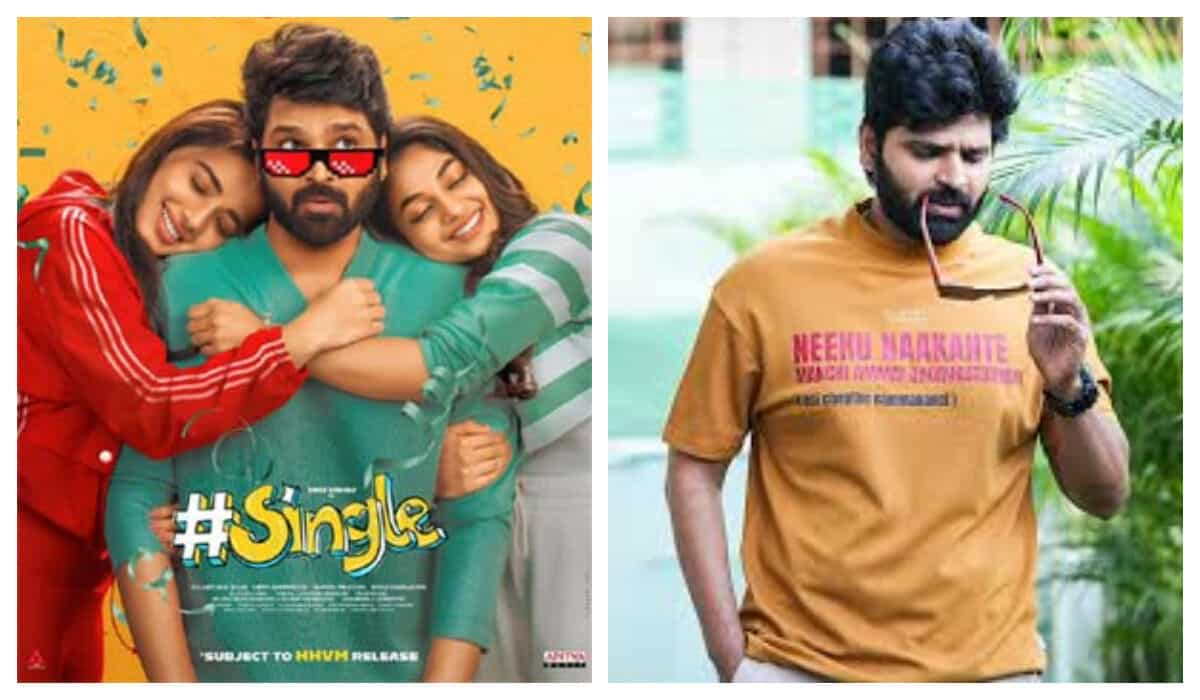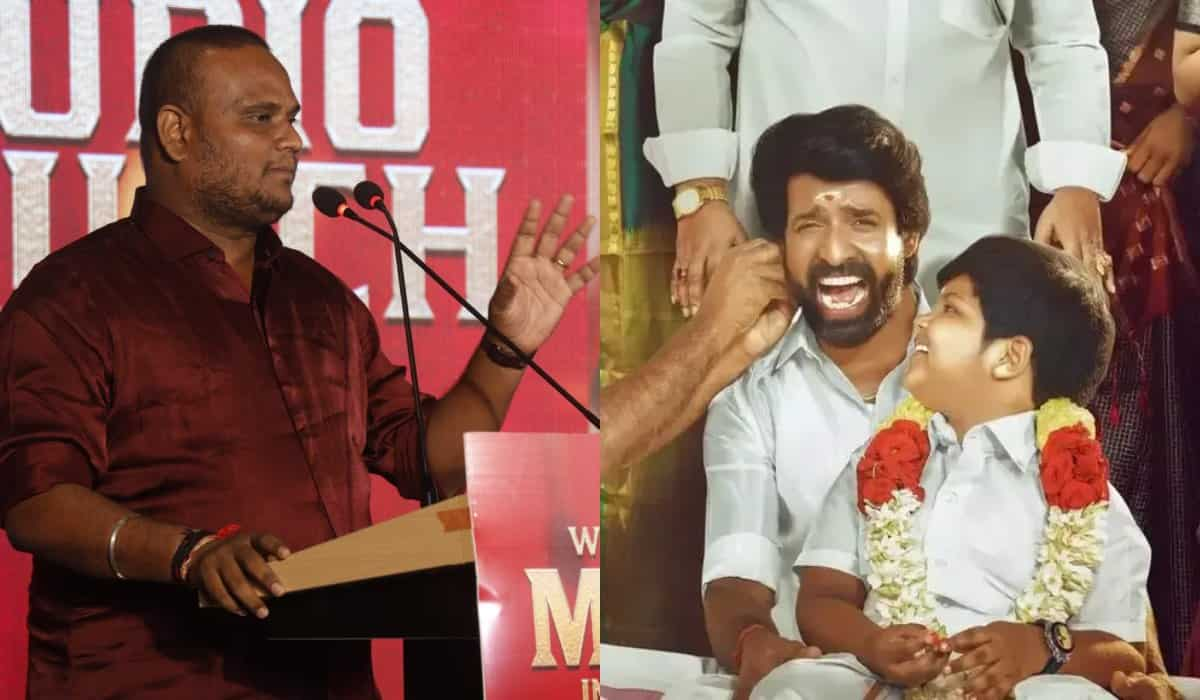
Jayaprakash Radhakrishnan Opens Up About Tackling Taboo Themes in Kaadhal Enbadhu Podhu Udamai
2 months ago | 5 Views
Director Jayaprakash Radhakrishnan, who just dropped his latest film Kaadhal Enbadhu Podhu Udamai (KEPU), a love story featuring two women with one coming out to her parents, was bracing himself for all sorts of reactions post-release.
"Surprisingly, 90% of the viewers who saw it really embraced the film. At one press screening, a journalist approached me and asked if I was the one behind Thalaikoothal, questioning why I made a film like KEPU. Then there was this older guy at a theater who spat on the floor and cursed the film right in front of me. Sure, there’s been some backlash, but overall, a lot of people, even those who usually stick to mainstream flicks, have accepted it," Jayaprakash shares.
Interview with Jayaprakash, the director of Kaadhal Enbadhu Podhu Udamai
What made you decide to create KEPU?
All my movies feel like conversations I’m having with myself. I once thought about creating a music video featuring a girl dancing her way to freedom, kind of like a butterfly emerging from its cocoon. That idea didn’t get picked up, but it stuck with me. When I got the opportunity to make a low-budget film set in a house, I decided to run with that concept because I thought it could spark some interesting discussions. People advised me against it, saying it goes against nature and might just turn into a trend. Still, I was determined to share this story.
Jeo Baby called me up asking if I had any low-budget scripts. He really liked my film Mosquito Philosophy and reached out to me afterward. I pitched the KEPU script during the lockdown, and we agreed to make the film after Thalaikoothal.
What made you decide to put two women in the spotlight?
There wasn't a lot of deep thought behind the decision to feature two women. Maybe it was something I had in mind ever since the music video fell through. I realized that having women in the spotlight would allow me to express the idea in a more elegant and beautiful way. Honestly, though, there wasn't a particular reason for choosing women over men. In the end, it doesn't really matter if it's two men or two women when it comes to love; everyone loves in their own way. After wrapping up the script, I had a feedback session with Malini Jeevaratnam about a month before filming, just to ensure that I hadn’t unintentionally offended anyone in the community with the dialogue.
How crucial was it to have recognizable faces like Lijomol, Rohini, and other familiar actors in KEPU?
It was super crucial. Honestly, it could have turned into a Kannada film since they offer funding for smaller projects. But then I thought about switching it to Tamil, and I didn’t want it to be just another festival flick. The thing is, everyone knows about these topics in the festival scene. We need to see change in mainstream cinema. When I pitched the script, a lot of people told me not to go ahead with it in Tamil. That’s exactly why I decided to make it in Tamil with a commercial cast. I was convinced it needed to be a commercial film. Having actors like Rohini and Lijomol on board was essential. It took me around two years to get this film ready for the audience. If I had gone with all newcomers, it probably wouldn’t have been released.
KEPU dives into some deep chats about classism, body autonomy, and the hypocrisy of those who claim to be progressive. Their discussions are really nuanced and thought-provoking. What was the journey like to figure out the rhythm?
Writing felt really natural for me. When it comes to screenwriting, you have to incorporate some dramatic flair; you can't just talk like you would in everyday life. Movies should capture the essence of reality, but with a twist. They need that dramatic punch, along with a philosophical angle. The story of KEPU revolves around the lead couple's struggle to create life, which is why they face opposition. To highlight this, we have characters around them who can reproduce. For instance, the mother has an abortion and then criticizes her ex-husband's new wife for not being able to conceive, while Mary, the servant's daughter, is dealing with her own issues with an abusive husband. This contrast creates a central conflict in the film.
Writing is all about intuition for me. Everyone sees themselves as the hero of their own story. So, when I dive into a character, I really try to see things from their viewpoint. For example, when the father leaves, he reassures his daughter of his love. Everyone wants to come off as the good guy and boost their own ego. The mother, too, wants to win her point against her ex-husband by claiming that he can't grasp her struggles. This is how arguments unfold in our homes; we often feel the need to say something that will help us come out on top.
What’s your take on KEPU’s results?
Movies should really resonate with people, and I want my audience to leave the theater feeling something. With KEPU, I’ve been really moved as a filmmaker. I saw a few folks from the community who watched it hug each other and tear up. One psychologist even mentioned he’d suggest this film to his clients. I noticed some viewers who had misconceptions before the screening changed their minds afterward. To me, those little moments are a win for my film. But on the flip side, I’m bummed about the financial side of filmmaking. We really need advance bookings to keep the shows running, but it’s crucial to boost walk-ins too. If not, it can look like there’s less interest than there actually is. I just hope more people will support indie films.
Read Also: Chhaava Dominates Box Office, Leaves Little Space for Mere Husband Ki Biwi on Day 1
Get the latest Bollywood entertainment news, trending celebrity news, latest celebrity news, new movie reviews, latest entertainment news, latest Bollywood news, and Bollywood celebrity fashion & style updates!
HOW DID YOU LIKE THIS ARTICLE? CHOOSE YOUR EMOTICON!
#




















